Dealing with Patients and Their Families in the Ward

Introduction
Working in a hospital ward can be both rewarding and challenging. Among the most stressful situations for healthcare professionals, especially doctors and nurses in training, is dealing with patients and their families which are difficult sometimes.
Difficult interactions can occur for many reasons — frustration, fear, misunderstandings, or unrealistic expectations. For FCPS trainees and hospital staff in Pakistan, managing these situations effectively is not only important for patient satisfaction but also for maintaining a safe and professional work environment.
In this article, “Dealing with patients and their families in the ward” we’ll explore practical strategies, communication tips, and real-life scenarios that will help you handle challenging patients and families with confidence.
Why Patients and Families Become Difficult
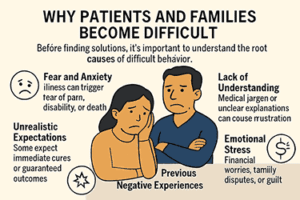
Before finding solutions, it’s important to understand the root causes of difficult behavior. Common reasons include:
Fear and Anxiety – Illness can trigger fear of pain, disability, or death.
Lack of Understanding – Medical jargon or unclear explanations can cause frustration.
Unrealistic Expectations – Some expect immediate cures or guaranteed outcomes.
Previous Negative Experiences – Past hospital encounters may have created mistrust.
Emotional Stress – Financial worries, family disputes, or guilt can spill into patient behavior.
The Impact of Difficult Interactions in the Ward
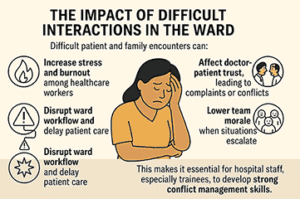
Difficult patient and family encounters can:
Increase stress and burnout among healthcare workers.
Disrupt ward workflow and delay patient care.
Affect doctor-patient trust, leading to complaints or conflicts.
Lower team morale when situations escalate.
This makes it essential for hospital staff, especially trainees, to develop strong conflict management skills.
Step-by-Step Strategies for Managing Difficult Patients
1. Stay Calm and Professional
Keep your voice steady and polite, even if the patient is angry.
Avoid reacting emotionally or defensively.
Take a deep breath before responding to aggressive statements.
2. Listen Actively
Maintain eye contact and nod to show you are listening.
Repeat back key points to confirm understanding.
Avoid interrupting — sometimes people just need to vent.
3. Show Empathy
Use phrases like:
“I understand this must be frustrating for you.”
“We are doing our best to make you comfortable.”
A little empathy can defuse a tense situation.
4. Clarify and Educate
Break down medical information into simple, clear language.
Use diagrams or written notes if needed.
Correct misinformation politely.
5. Set Boundaries
Be clear about hospital rules and procedures.
Address inappropriate behavior calmly but firmly.
Involve security or senior staff if safety is at risk.
Dealing with Difficult Families in the Ward
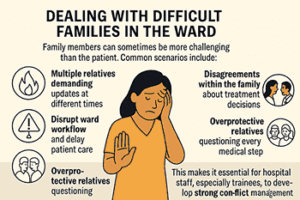
Family members can sometimes be more challenging than the patient. Common scenarios include:
Multiple relatives demanding updates at different times
Disagreements within the family about treatment decisions
Overprotective relatives questioning every medical step
Tips for Handling Families
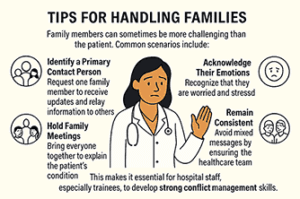
Identify a Primary Contact Person – Request one family member to receive updates and relay information to others.
Hold Family Meetings – Bring everyone together to explain the patient’s condition at once.
Acknowledge Their Emotions – Recognize that they are worried and stressed.
Remain Consistent – Avoid mixed messages by ensuring the healthcare team gives the same updates.
Communication Skills That Make a Difference
Effective communication is the most important tool in managing difficult patients and families.
Use the LEAPS Technique
Listen – Give them your full attention.
Empathize – Show you understand their feelings.
Apologize (when appropriate) – Even if it’s not your fault, saying “I’m sorry this happened” helps.
Problem-solve – Offer solutions or alternatives.
Summarize – Repeat the agreed plan so everyone is clear.
Cultural Considerations in Pakistan
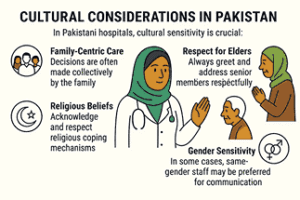
In Pakistani hospitals, cultural sensitivity is crucial:
Family-Centric Care – Decisions are often made collectively by the family.
Respect for Elders – Always greet and address senior family members respectfully.
Religious Beliefs – Acknowledge and respect religious coping mechanisms.
Gender Sensitivity – In some cases, same-gender staff may be preferred for communication.
When Situations Escalate
Despite your best efforts, some situations may get out of control.
In such cases:
Remain calm and step away if needed.
Involve a senior doctor or nurse manager.
Use hospital security only when safety is at risk.
Document the interaction in detail for hospital records.
Self-Care for Healthcare Professionals
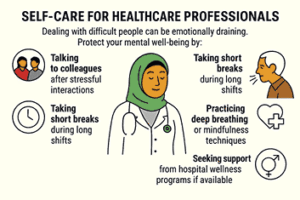
Dealing with difficult people can be emotionally draining. Protect your mental well-being by:
Talking to colleagues after stressful interactions.
Taking short breaks during long shifts.
Practicing deep breathing or mindfulness techniques.
Seeking support from hospital wellness programs if available.
Real-Life Example
A 45-year-old patient with chronic kidney disease becomes angry when dialysis is delayed due to equipment issues. His brother shouts at the nursing staff.
Response: The duty doctor explains the situation calmly, offers an alternative dialysis slot later in the day, and apologizes for the inconvenience. The doctor also arranges for a senior consultant to speak to the family for reassurance.
Outcome: The family calms down, and the patient receives treatment without further conflict.
Conclusion
Dealing with difficult patients and families is an inevitable part of ward life. For healthcare professionals, especially FCPS trainees in Pakistan, learning to handle these situations with calmness, empathy, and professionalism is a critical skill.
By understanding the root causes of difficult behavior, using effective communication techniques, and setting clear boundaries, you can maintain a positive environment for both patients and staff — ensuring better healthcare outcomes and a safer workplace.
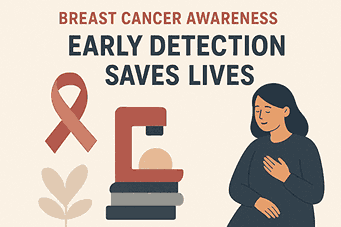
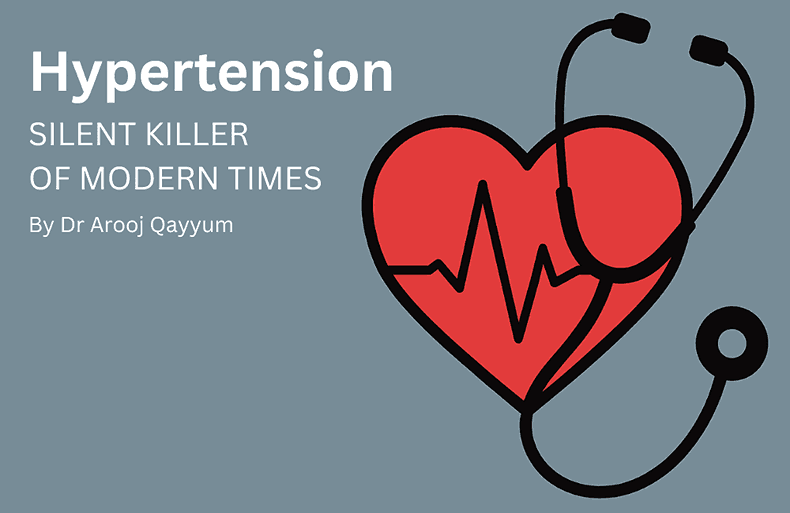
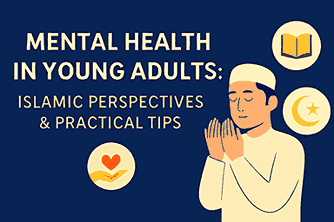
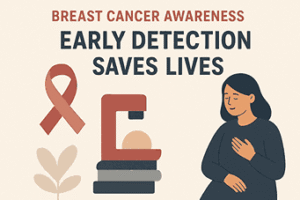
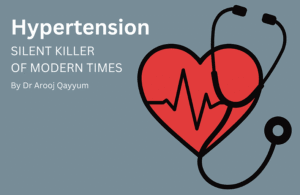
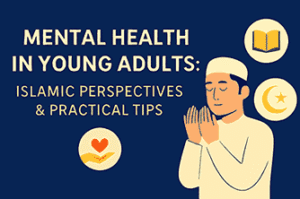

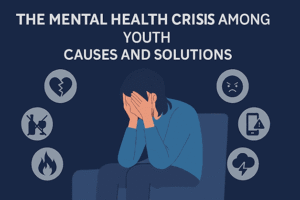
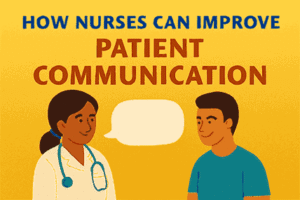
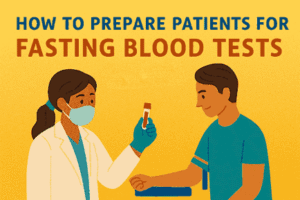
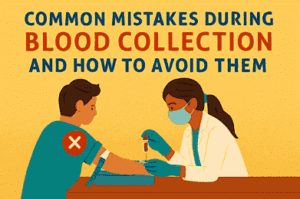


Post Comment